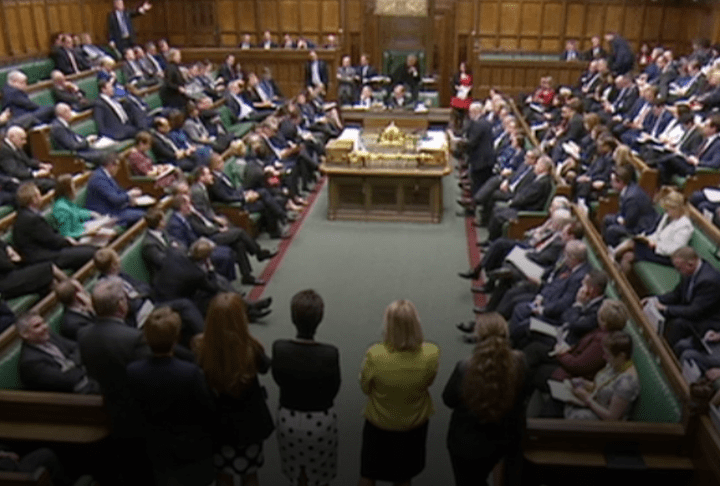This afternoon’s emergency debate on Syria isn’t quite working out as anyone had really planned. For Labour, it was an opportunity to undermine the government by complaining about the lack of parliamentary consent for the weekend strikes on the Assad regime’s chemical weapons capability. For the Tories, it was an opportunity to show that there was still strong support across the House for that action. Some MPs may even have come along to debate the principles in question; namely the balance of powers between executive and legislature.
Jeremy Corbyn certainly tried to pitch it thus when he spoke, arguing that what the Prime Minister had done was anti-democratic:
‘It seems the convention established in 2003 and in the Cabinet Manual is being tossed aside as simply being inconvenient, and so Mr Speaker, I believe it’s necessary and urgent that this house has the opportunity to discuss its rights and responsibilities in decisions on UK military intervention which is not currently codified by law and which as we have discovered in recent days cannot be guaranteed by convention alone.’
His point, that Parliament should debate what its rights are when it comes to decision-making, is hardly unreasonable. But what rather undermines it is the party’s position on its own motion, which is to whip for a ‘no’ vote. The motion, tabled by Corbyn himself, says:
‘That this House has considered Parliament’s rights in relation to the approval of military action by British Forces overseas.’
This is odd. Labour is going to say that the House hasn’t considered the matter, when that is exactly what Corbyn was talking about, and what most MPs are now covering in their speeches. Had the motion said ‘that this House is content with Parliament’s current rights in relation to the approval of military action by British Forces overseas.’
Unsurprisingly, the decision to vote against its own motion has left Labour in quite some confusion. I understand that initially some of the party’s whips misunderstood what was going on, and instructed MPs to vote for the motion. Now, a few dozen backbenchers have told their whips that given they were instructed to abstain last night on the grounds the SNP had forced a vote that was meaningless and Labour wouldn’t be playing games, they will be abstaining again this afternoon.
That’s not to say that the Tories are doing brilliantly in this debate either. A number of their MPs are deeply uncomfortable with the tone set in the debate by Conservative whips. Backbenchers were, the words of one member, ‘revved up’ beforehand, which explains the number of excitable interventions, heckles and noisy interruptions during Corbyn’s speech. The Speaker had to call the House to order repeatedly, and even issued an ultimatum to Alec Shelbrooke to behave or leave the Chamber for the rest of the afternoon.
The strategy of the whips would have been to disrupt the flow of Corbyn’s speech and to create an atmosphere in which he appeared quite isolated. The problem is that it also created an atmosphere which appeared overly partisan, given the seriousness of the matter. There is in fact an important debate to be had about parliamentary approval for military intervention, one that the Conservatives spent a fair bit of time on themselves under David Cameron.
Now the speeches have moved onto backbenchers, the tone of the debate has become more restrained and considered. But it does feel like rather a waste of time, given that no-one fully understands why they are there.







Comments